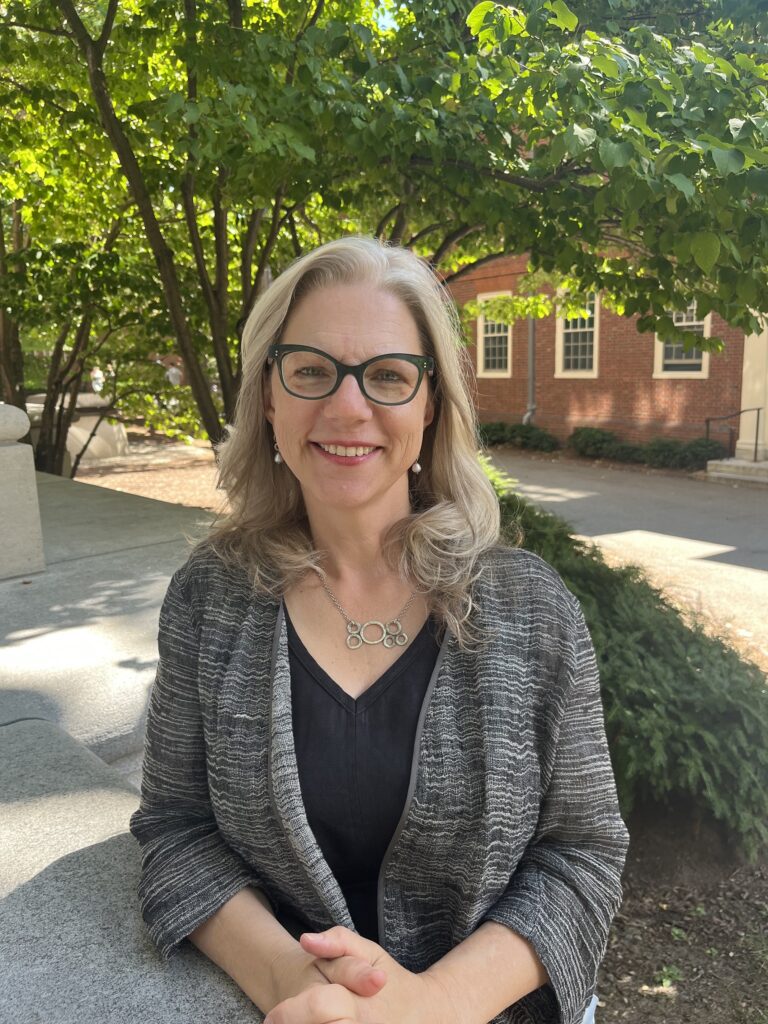Supervision Award for Faculty Members
Award Winners

Purpose
The School of Graduate Studies Supervision Awards aim to recognize outstanding performance in the multiple roles associated with graduate student supervision. Each year, two JJ Berry Smith Doctoral Supervision Awards and two SGS Early Career Supervision Awards will be offered to successful nominees: one of each award in the Humanities / Social Sciences and in the Physical / Life Sciences.
Each award recipient receives an SGS Supervision Award certificate, an SGS Travel or Conference Grant (up to $5000) for a current student to support their research travel or conference presentation. Award winners have their names inscribed on a plaque housed at the School of Graduate Studies
The annual SGS Graduate Student Supervision Awards honour active faculty members who, over a minimum of a 15-year period (JJ Berry Smith Doctoral Supervision Award) or up to 6 years (SGS Early Career Supervision Award), have demonstrated excellence in supervision at the University of Toronto by:
- inspiring and guiding students to reach excellence in scholarship, fostering a strong sense of academic integrity;
- providing an environment that is supportive with particular attention to mental health and work life balance;
- enabling students to learn the essential methodologies, concepts and cultures of their discipline;
- introducing students to the wider content of the discipline and relevant communities of scholars;
- promoting student participation in professional development and activities that position them for future careers both within and outside academia; and
- leading a research environment that is committed to equity, diversity, and inclusion.
Eligibility Criteria
JJ Berry Smith Doctoral Supervision Award:
Nominees must be active graduate faculty members at the University of Toronto, having supervised doctoral students (PhD, EdD, DMA, SJD) for a minimum of 15 years
Early Career Supervision Award:
Nominees must be tenure-stream or status-only graduate faculty members at the University of Toronto within the first six years of acquiring a graduate faculty appointment, having engaged in supervision of graduate students (master’s degree or doctoral degree) in committee member, co-supervisor or sole supervisor roles.
Selection Criteria
Nominations will be evaluated based on how well the candidates have demonstrated excellence in supervision at the University of Toronto by meeting and exceeding each selection criteria below:
- Inspiring and guiding students to achieve excellence in scholarship, fostering a strong sense of academic integrity;
- Providing an environment that is supportive with particular attention to mental health and work life balance, while stimulating and tailored to their individual learning styles, needs, and career/future aspirations;
- Enabling students to learn the essential methodologies, concepts and cultures of their discipline;
- Introducing students to the wider context of the discipline and relevant communities of scholars; and
- Promoting student participation in professional development and activities that position them for future careers within and outside academia;
- Leading a research environment that is committed to equity, diversity, and inclusion.
In an effort to assist Faculties in reviewing their nominations, an SGS Scoring Sheet is available for Faculties’ internal selection committee use, and may be shared with nominators / nominees.
Important Dates
- Deadline: Date set locally by graduate unit / faculty
- Faculty Nomination to SGS: April 1, 2024
- Results and Presentation of Award: May 2024
Nomination Package
The nomination package provides evidence that the nominee has met the above six criteria as demonstrated through the following components:
Components 1 through 5 should be submitted as separate PDF files, using the file naming convention “Last name, First name – 2024 SGS Supervision [Item Name]”.
Components 6 and 7 should be submitted as separate excel spreadsheets, using the file naming convention “Last name, First name – 2024 SGS Supervision A (or B)”.
- Completed Nomination Form;
- A substantial Faculty letter of recommendation from the Dean / Vice-Dean, Graduate (2 pages), which clearly sets out the basis for the nomination. Letter should provide context for the discipline: e.g. clearly address the supervisory norms (including expectations for publishing and presenting with supervised students), types of students (e.g. placement in academia vs. industry), publication norms (especially for early career nominees), and how the nominee stands out among peers in the same discipline;
- Letters of nomination (letters may be from an individual or group):
- A letter from the department chair, current or former colleague(s); and
- Two to five letters from current or former students(s) – group letters are encouraged;
- A statement written by the candidate (2-3 pages, suitable for public release):
- Addressing the candidate’s graduate mentoring / supervision philosophy, and
- Describing the candidate’s personal approach or strategies for mentoring/supervision;
- Abbreviated Curriculum Vitae (max. 8 pages) addressing the following categories, as applicable:
- Academic Appointment(s)
- Mentoring or Supervision awards
- Awards for joint work with graduate students
- Funded or unfunded grants with graduate students
- All publications within the last 5 years with notations* to indicate those co-published with graduate students:
- Additionally, list only co-publications with graduate students beyond the last five years and:
- Within the last 15 years for JJ Berry Smith Award; or
- Within last 6 years for Early Career Award
- Additionally, list only co-publications with graduate students beyond the last five years and:
- Co-presentations with graduate students
- Within the last 15 years for JJ Berry Smith Award; or
- Within the last 6 years for Early Career Award
- Updated: Past and current graduate advisory roles (in a non-supervisory capacity, e.g. thesis committee member)
- External appraisals of doctoral dissertations, which includes:
- Appraisal of a thesis or dissertation completed at a university where the nominee was not a faculty member; and
- Appraisal of a thesis or dissertation completed at the same university as the nominee and supervised by a committee that did not include the nominee.
- Service related to graduate student support, supervision or mentoring
- Other activities or accomplishments relevant to graduate student supervision and mentorship.
- A completed Table A: List of nominators in Excel format; and
- A completed Table B: listing all current and former graduate (master’s and doctoral) students including their degree information, current positions, etc.
*Please indicate publications with current or former graduate student co-authors using the following notations: highlighting the publication in yellow; and underlining the names of graduate students within each publication.
Nomination Process
Faculty nominations are due to the Dean of Graduate Studies and Vice-Provost, Graduate Research and Education through the Faculty Dean or Vice Dean Graduate Office.
Students, faculty members and staff wishing to submit a nomination package for consideration by their Faculty should contact their home graduate unit to inquire about the selection process and local deadlines.
Faculties may nominate one candidate in each of the four SGS divisions (Humanities, Social Sciences, Physical Science, Life Science) to a maximum of four nominees per award, i.e., up to four nominees for the JJ Berry Smith Award and up to four nominees for the Early Career Supervisor Award. The divisional category of nomination is up to the discretion of the nominating faculty; normally the nominee would fall into the SGS division of the graduate unit where they hold graduate faculty membership.
Requests for an additional quota may be considered by SGS where a Faculty has two exceptional candidates from within the same division. Each nomination package is to be submitted electronically as 7 separate files (5 PDFs, 2 Excel spreadsheets).
Please retain the original application materials until December 31, 2024. In the event that a candidate is being put forth for other supervision/ mentorship awards, faculty offices will be contacted to provide documents in MS Word format. For example, winners of the JJ Berry Smith Supervision Awards may be invited to be nominated for the annual CAGS and NAGS Mentorship awards.
Nominations are due to SGS from Faculties by April 1, 2024
Dean of Graduate Studies and Vice-Provost, Graduate Research and Education
c/o Graduate Awards Office
School of Graduate Studies
Tel: 416-978-2150
Email: graduate.awards@utoronto.ca
Contacts & Resources
Graduate Awards Office
School of Graduate Studies
416-978-2150
Email: graduate.awards@utoronto.ca




